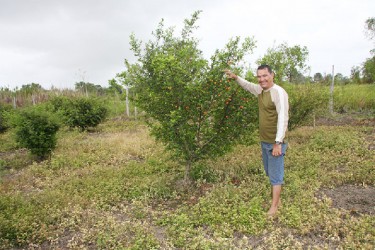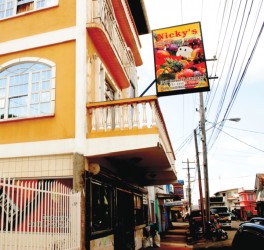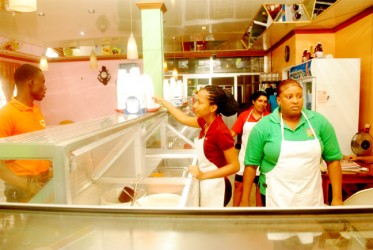These days, as an increasing number of entrepreneurs seek to market health and wellness as a viable commodity, the demand for fresh fruit and the juices derived therefrom continues to grow at an impressive pace.
While the more costly, more elaborate marketing that has come to be associated with aerated beverages means that the further popularisation of fruit juices will require still more investment, the market continues to grow at an impressive rate.
The municipal markets tell the tale. As recently as 30 years ago, tropical fruit trees were the purview of the neighbourhood boys, whether they grew in the yard next door or in the nearby backdam. In those days there was no great gain to be had from selling fruit in the local market.
That has changed. Issues of health and affordability have made fruit juices the most sought-after beverage locally, among mothers of school-age children and among business houses, reaching for a wider market. The demand has grown beyond the supply capacity of the available trees so that in order to sustain their ventures some business houses have begun to invest in orchards of their own.

Nicky’s Natural Fruit Juices and Ice Cream situated at lot 7 Camp Street, Werk-en-Rust is one of what is still a handful of enterprises that offer value-added beverages manufactured from fruit grown in its own orchard.
Damien and Nalini Da Silva founded the rise enterprise in 1994. Nalini oversees the day-to-day operations of the Camp Street snackette while Damien manages the farm.
In the beginning they would buy enough cherries to pulp half a gallon of juice. That juice, along with a few egg balls and pastries would amount to their sales for a day. Today, they manufacture and sell juices and shakes made from kuru, papaw, orange, soursop, cherry, guava, tamarind, sugarcane, jamoon, passion fruit, pineapple, awara and golden apple, among others.
Every day, buckets containing juices squeezed from a range of fruit cram the display cases at the Camp street outlet. Not infrequently, a huge soursop is displayed on the counter. Nicky’s has, over time, become one of the leading urban lights in local fruit beverages.
To understand the extent to which the proprietors have gone to make the enterprise what it is, you have to visit their 75-acre orchard at Naamryck, Parika backdam, East Bank Essequibo.
High prices, poor quality and unreliable supplies forced the Da Silvas to take control of their fruit supplies. They acquired their first orchard in 1998. Two additional lots were acquired subsequently.

The whole orchard comprises approximately 3,000 cherry trees, 7,000 soursop trees, hundreds of guava, mango, and passion fruit trees. Plum is the only fruit that they purchase. Soursop is one of the most prized fruits in the health and wellness culture and Damien’s bountiful harvests of the fruit has earned him the title ‘the soursop man.’
Over time, the Da Silvas sourced the equipment from Brazil to create a factory with a capacity of 500 gallons of fruit juices daily. Demerara Distillers Ltd, the manufacturer of Topco Fruit Juices, is among their customers. At the retail level prices range from $300 to $500 per glass. Ice cream prices range from $400 to $600 per cup.
Other clients include commercial banks, restaurants, government ministries and international organisations. Nicky’s products are also popular at parties, weddings and other public functions.

Juices and ice creams apart, the enterprise sells creole food, purified water, and a range of condiments.
Apart from fruit trees, the Da Silvas tend goats and ducks for commercial purposes.
Controlling fruit supplies has made a significant difference to the business. Damien says the plants are durable, need minimal attention and thrive even in the current period of dry weather.
When Stabroek Business visited, the Camp Street business on Tuesday evening, there was evidence of a steady stream of customers most of whom were interested in Nicky’s Juices and Shakes. Come June, the Da Silvas will commence trading from another location on Albert Street, between Church and Robb streets.
At Parika, the Damien is supported by four farm hands and the current dry spell is being used to reap fruit and manure plants. The harvesting of fruit is supported by a group of pickers from the community.








